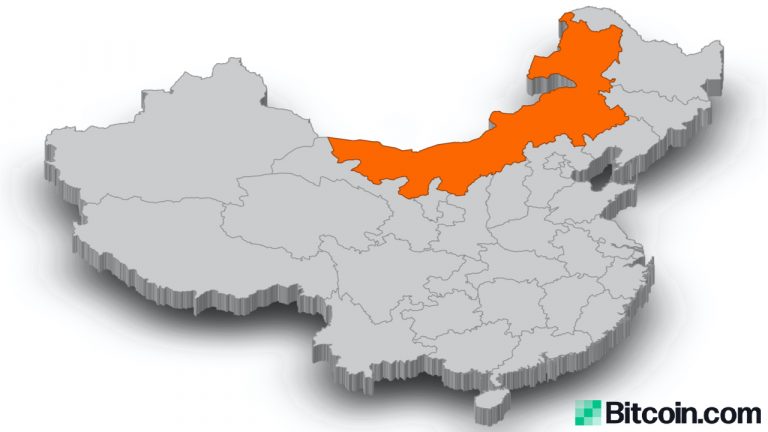Beijing’s Distaste for Bitcoin Mining Spreads to Inner Mongolia, Miners Could Face a ‘Social Credit Blacklist’

Beijing’s recent crackdown on the cryptocurrency industry has found its way into Inner Mongolia according to a recent report. Inner Mongolian officials plan to introduce harsh penalties to bitcoin mining operations using the region’s grid without permission from authorities.
New Rules Aim to ‘Punish Bitcoin Miners’
A regional report published by South China Morning Post’s contributor Coco Feng explains that Inner Mongolia’s top economic planner has revealed new rules against operating bitcoin mining facilities in the region.
The new draft rules are available for public review until June 1 and it recently follows Inner Mongolian authorities asking residents to report illegal bitcoin data centers to the government. Beijing wants mainland China and even the Mongolic autonomous region of the People’s Republic of China to be carbon neutral by 2060.
Feng details that the authorities in Inner Mongolia plan to target “industrial parks, data centres, telecoms companies, internet firms, and even cybercafes.” Bitcoin.com News recently reported on how cybercafes in China have been mining cryptocurrencies for extra income.
The news rules aim to “punish bitcoin miners or those providing resources to miners” by leveraging a number of enforcements. Transgressors could be added to China’s “social credit blacklist” which would stop them from obtaining finance loans in the country and other benefits.
Other punishments include:
Revoking business licenses, and even shutting their businesses down completely.
Following the Path to ‘De-China-isation’
Wang Juan, an associate professor on blockchain at Xi’an Jiaotong University detailed that the crypto market is slowly moving away from mainland China.
“We are seeing the cryptocurrency market follow a path to ‘de-China-isation’ – first on trading and now on computing power, based on a series of stronger steps taken against cryptocurrencies and bitcoin mining last week by Beijing,” Juan explained on Tuesday.
Moreover, cryptocurrency firms have been abandoning China during the last few days. Huobi and Okex stopped offering specific services to mainland customers and Btc.top and Hashcow followed suit the next day. Some have even implied that Chinese miners will be selling “cheap” mining rigs in the near future.
What do you think about Inner Mongolia following Beijing’s recent crackdown on the crypto industry and bitcoin mining? Let us know what you think about this subject in the comments section below.
from Bitcoin News https://ift.tt/3wuGH5w
Comments
Post a Comment